Many parents struggle with deciding whether their children should start music lessons. You’ve probably heard about the benefits of learning a musical instrument, and you don’t want children to miss out.
But is it really that important?
Continue reading this article to learn about the impact of music on people of all ages.
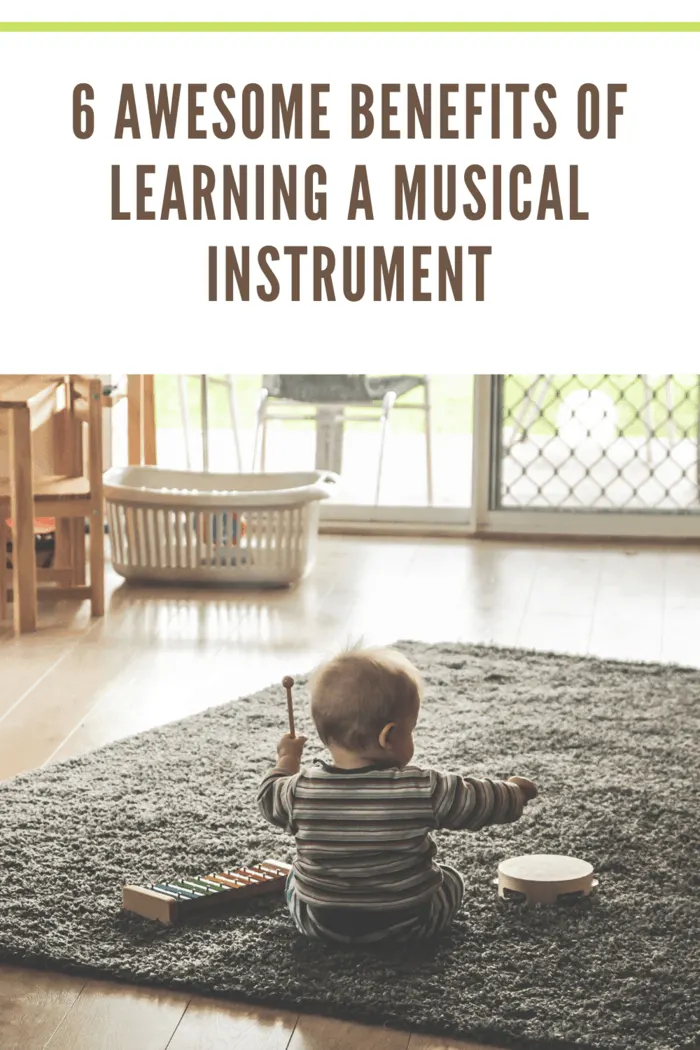
6 Awesome Benefits of Learning a Musical Instrument
What Is the Best Age to Begin Music Lessons?
Many people wonder about the right age to start their child in music lessons.
One study looked at the impact of group music lessons on children aged 4 to 7 years.
They measured children’s sociability by rating their empathy, personality, and social skills.
Researchers found that very young group music lesson students had higher sociability-related scores (frontiers).
They also showed higher communication-related scores (NCBI).
It’s also important to define what you mean by music lessons.
Exposing children to a wide range of music at an early age is beneficial.
Yet, is the goal to have young kids playing instruments?
A good approach is to expose very young children to a musical environment.
Play games, sway, move to the music, and sing.
Offer the child musical instruments to play with.
At about age 3, help them learn to hear/feel the beat in music (Live About).
Find the melody and name the instruments they hear.
By age 5, they can build on these basic skills and begin learning to play an instrument.
Violin and piano lessons are often the most common instruments that children start with.
They can also begin by learning to play the recorder (wiki), guitar, and ukulele.
When a child is about ten years old, they have enough skills to choose their instrument.
They’ve gained the physical strength and size to play brass or larger string instruments.
Lesson goals focus on experience and performance ability.
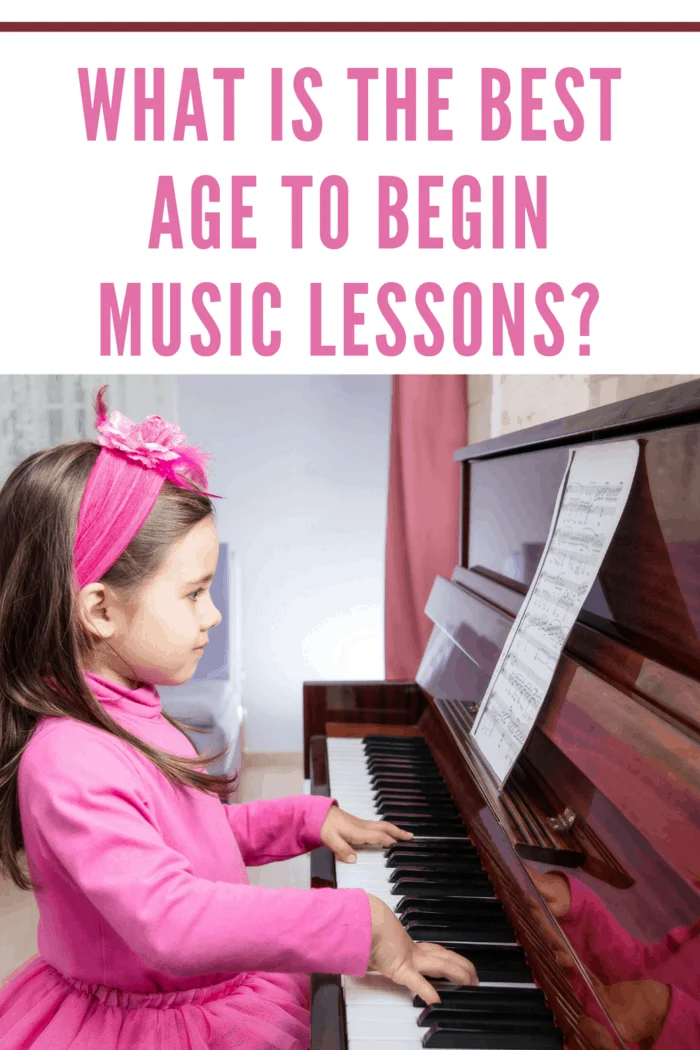
Benefits of Learning a Musical Instrument
The benefits of playing a musical instrument are not only for the young.
Here are seven benefits you can expect to continue throughout life.
Increase in Alertness
Musicians are often more mentally alert (Harvard).
Music stimulates our basic sensory processes.
Musicians also demonstrate faster auditory, touch, and audio-touch reaction times.
This translates into more integrated input from different senses.
Improve Reaction Time
Playing a musical instrument can help those with slower reaction times.
Practicing an instrument requires the person to respond to keep the rhythm.
Thus, playing music exercises those response times and hones those skills.
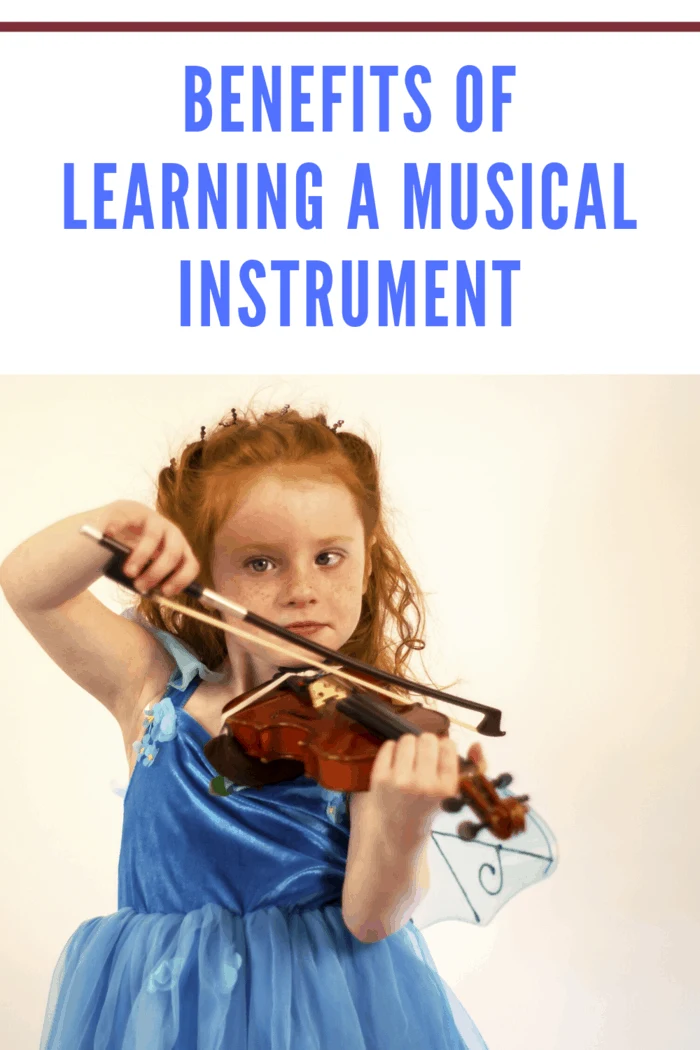
Decreased Stress
Playing music lowers the heart and respiratory rates and blood pressure.
This correlates to lower stress levels.
Music also improves your immune response and decreases cardiac complications.
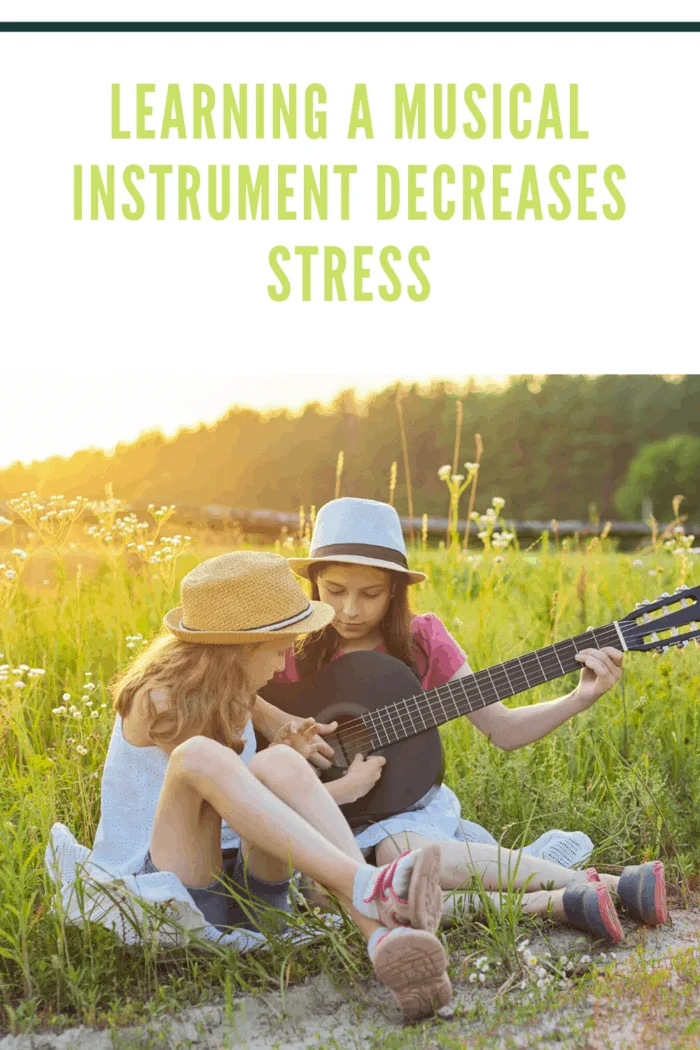
Enhances Concentration
You must focus on following the score and keeping the rhythm when playing any instrument.
If you play in a group, you must also attend to the other instrumentalists.
According to the experts at Take Lessons, playing the piano requires split concentration.
You must look at many notes and use both hands and even your feet.
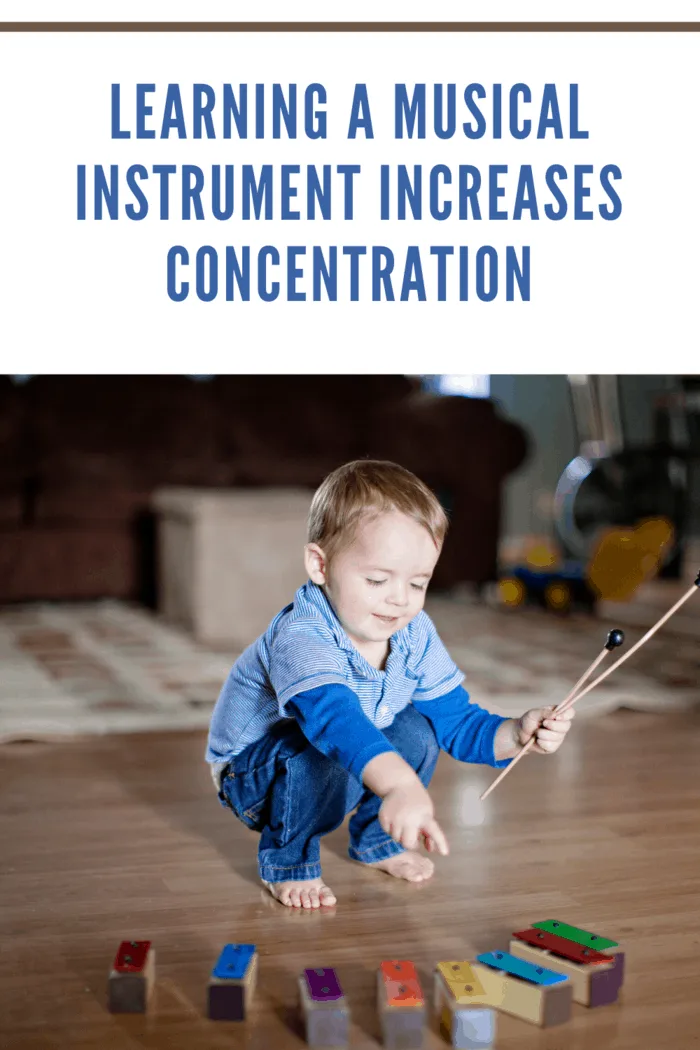
5. Increases Brain Power
Musicians’ brains benefit from their craft.
Music contributes to the brain’s creation and repair of connections.
This is helpful after an injury.
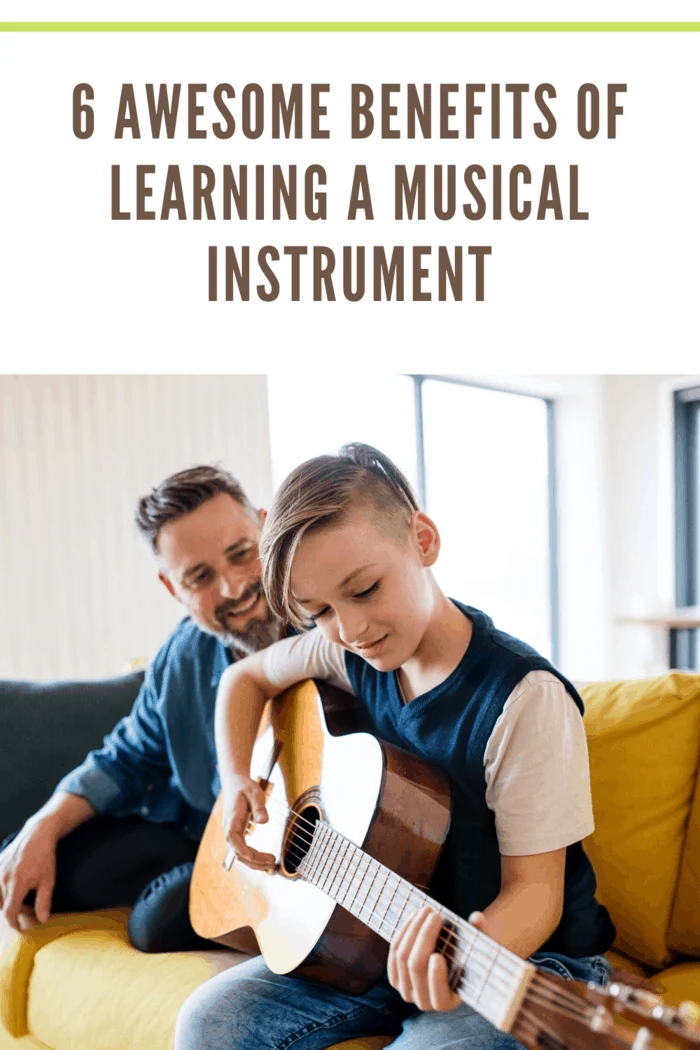
Increased Motor Skills
Playing different types of instruments requires different motor skills.
Most require the use of both hands and even your feet with improved dexterity.
Musicians also have better hand-eye coordination.
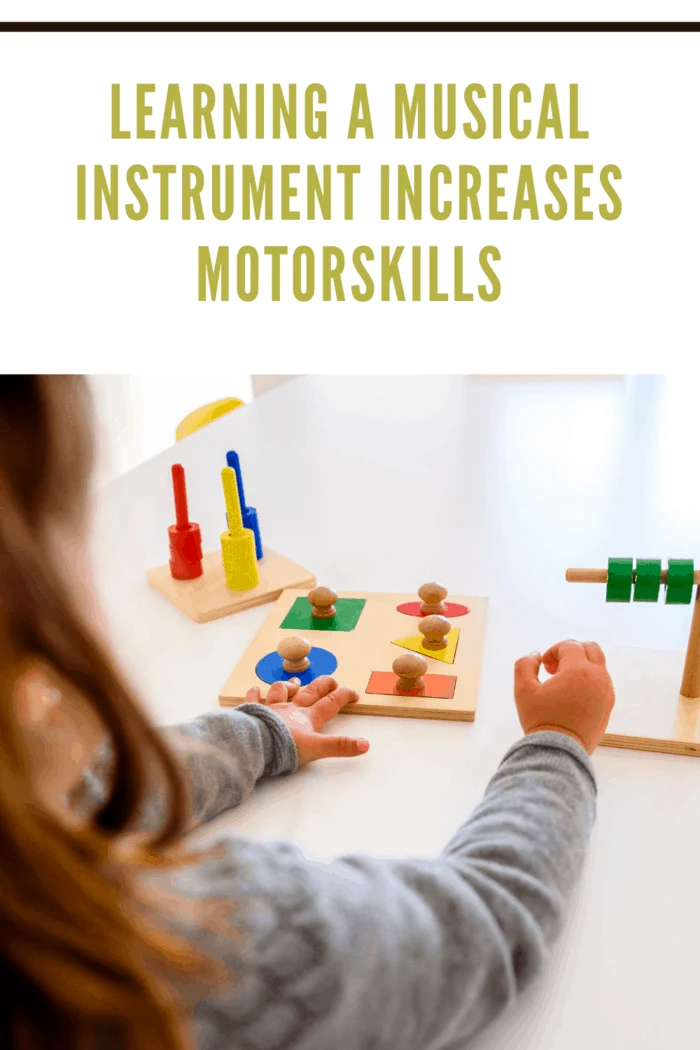
Are You a Parent Looking for Resources?
Many parents have questions and seek new ideas.
Our site is dedicated to parents.
We continue adding articles like this one about the benefits of learning a musical instrument.
You will find information about the infant years, childhood, teenagers, and more.
There are also articles about caring for yourself after giving birth.
Bookmark our site today so you can return and read new information.
